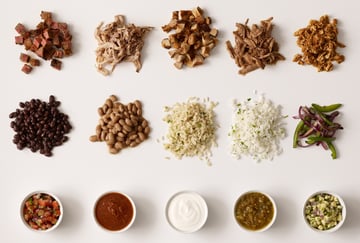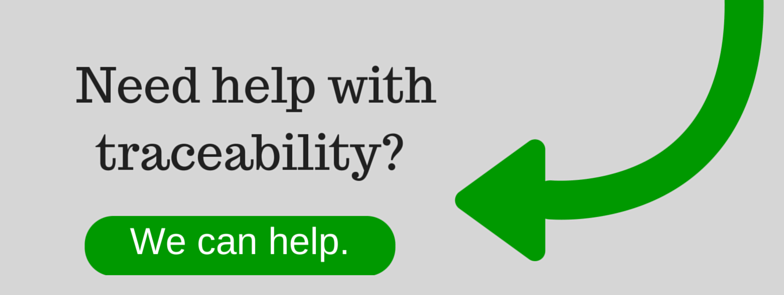As a marketing professional, you’re tasked with constantly educating yourself on the latest trends, seeking new ways to target your audience and striving to ensure your brand stands out from competitors.
But as a marketing leader in the food industry, you face an additional responsibility: making sure your company’s claims about its product are not only true, but consistently meet government regulations and public scrutiny. In an industry where reputation is everything, even the slightest oversight in quality could be catastrophic. That’s where whole chain traceability comes in.
Today, we’re going to focus on a few things marketing leaders should know about food traceability, and how you can use this knowledge to strengthen your campaigns.
What is Whole Chain Traceability?
Before you can add this tool to your marketing arsenal, you need to know how it works.
You’re likely already familiar with your brand’s supply chain, and may even communicate with the supply team on a regular basis. But usually, most of the information you have is about how your company handles products after they’ve reached your doors. That’s because, until recently, getting growers, suppliers and distribution centers to adopt one cohesive food safety process was nearly impossible.
Unlike traditional supply chain tracing, whole chain traceability uses both internal and external data to provide all parties with a clear, detailed view of the entire supply chain. For example, let’s say your brand sells fresh guacamole. Using traceability software, you could effectively monitor every event between the moment the avocadoes were picked on a farm in San Diego to the moment they arrived at one of your restaurants in Portland, Oregon.
Now that you understand the basics of whole chain traceability, let’s take a look at the top three things you need to know about this solution.
1. Prevention Trumps Disaster Recovery
As a marketing leader, you know the faster you meet customer needs and resolve concerns, the more satisfied your customers. As many of the country’s largest chains can attest, being “careful” isn’t always enough to prevent low quality or contaminated products from reaching your doors. However, it’s how well you prepare for these events that determines the severity of the impact on your business.
From a marketing perspective, whole chain traceability offers incredible power. Not only can the supply team quickly cite the problem and begin working toward a resolution, you can immediately provide your audience with the details they need to feel confident. By sharing the steps you’re taking toward a resolution, and proving the promptness with which your brand reacts, you can assuage concerns and foster consumer loyalty.
2. A Solid Foundation for Every Claim
Organic, sustainable, locally grown, antibiotic-free, free range … there are a multitude of words food industry marketers use to entice customers. But unless these claims are true, your brand could face government sanctions and lose consumer trust. As a marketing leader, you didn’t get where you are by engaging in unethical practices, and you certainly don’t want to start now.
Whole chain traceability gives you access to data that backs up your claims. This way you know, without the shadow of a doubt, you’re being truthful with customers. And should the quality of your brand’s product ever come into question, you’ll have the information you need to prove legitimacy.
3. Consumers Know More than You Think
For many decades, only those employed in an industry were privy to supply chain information. For example, while a shopper in a department store may not know where the fabric for a blouse was sourced or in which factory the garment was constructed, a good marketer would know the entire chain of events.
But times have changed. Consumers have taken a vested interest in the production of the goods they purchase. Thanks to unlimited access to information online, consumers make it a point to do their due diligence and know the right questions to ask. They care about whether a piece of clothing was made in a sweatshop-free environment or if produce was grown locally without insecticides, and often, a quick Google query will provide the answers they’re seeking.
In other words, today’s consumers are educated and eager for more knowledge. Whole chain food traceability helps you understand the process yourself, and can help you better address customer concerns and improve customer transparency.
Whole chain traceability is essential to success in the food industry—not just for supply professionals, but for marketing leaders like you. The more information you have, the more effective your campaigns and the stronger your relationship with the consumers you serve.
Interested in connecting the dots through whole chain traceability? Learn more about the FoodLoqiQ solutions now!
Tag(s):
Traceability
Other posts you might be interested in
View All Posts
Traceability
5 min read
| June 23, 2021
How Chipotle Got Started on Their Traceability Journey
Read More
Food Industry
4 min read
| April 27, 2016
Food Industry Transparency: Why Today's Customers Care
Read More
Traceability
3 min read
| July 21, 2016


